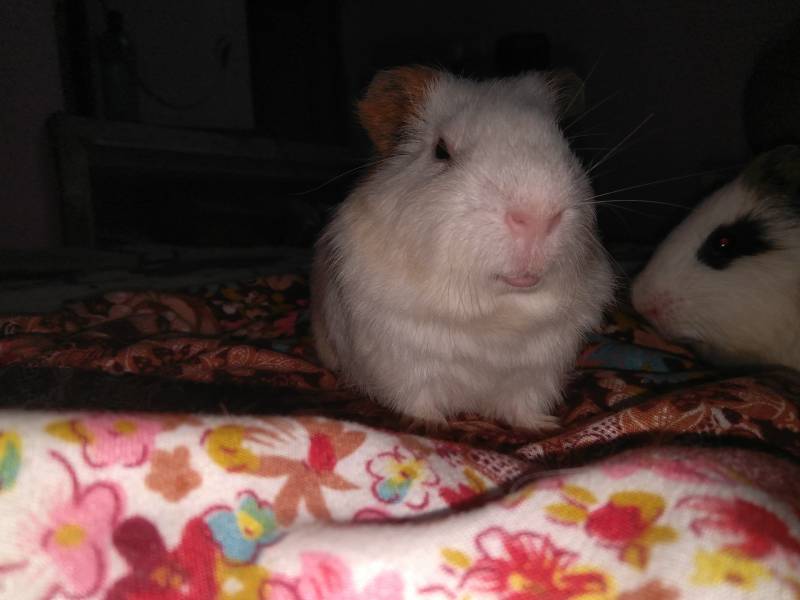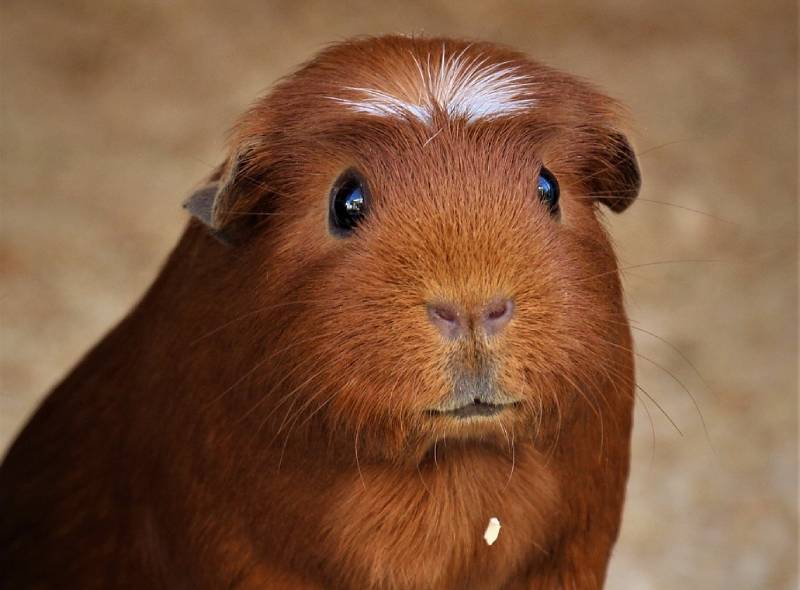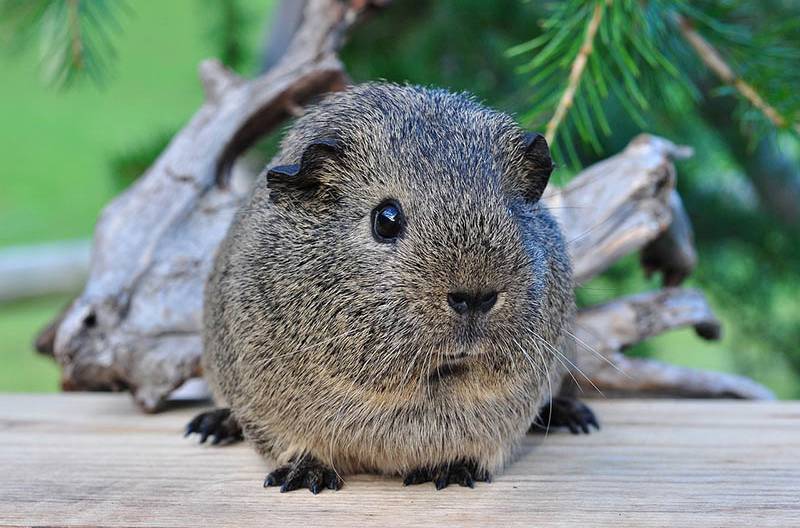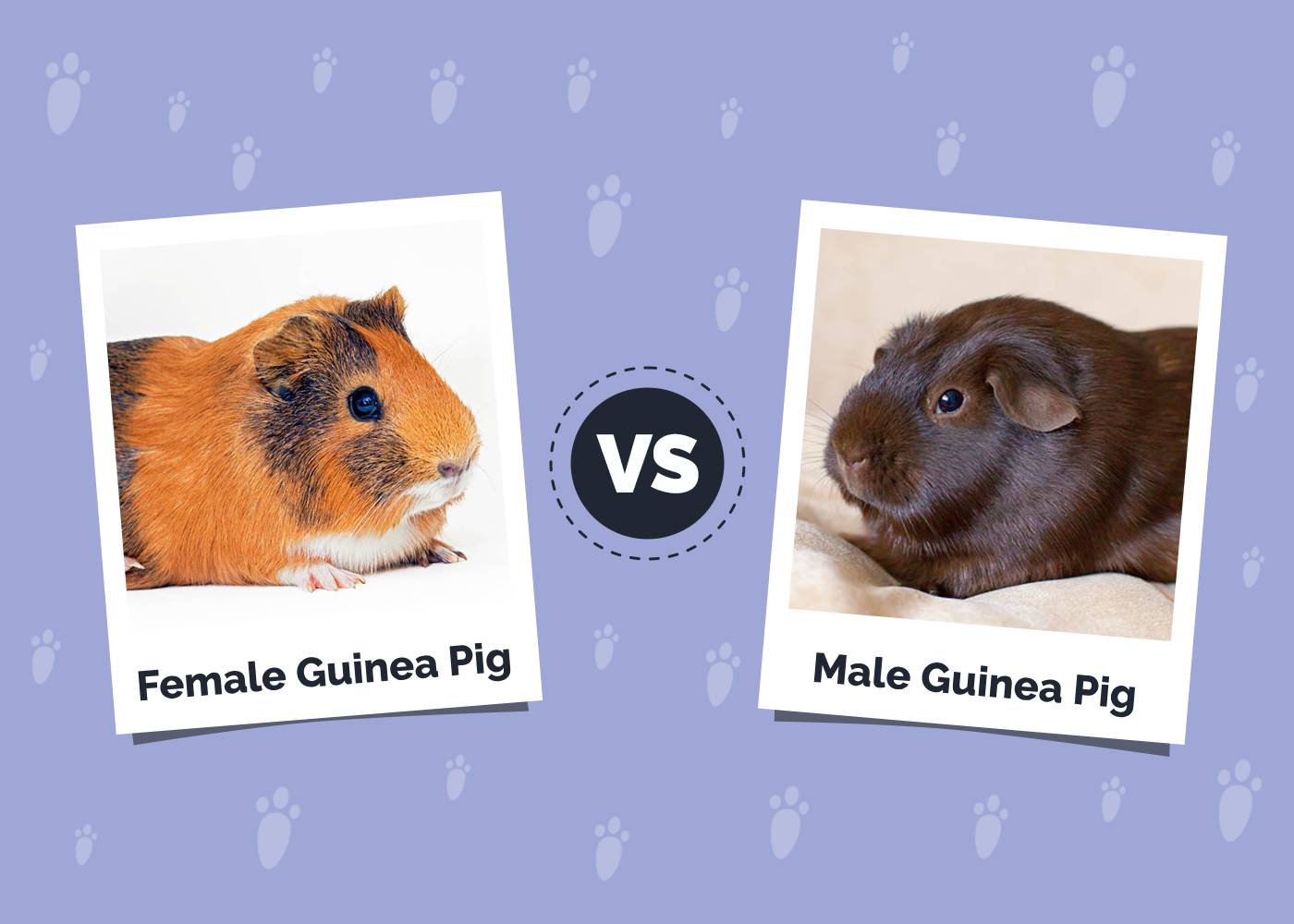Can Guinea Pigs See in the Dark? Vet-Reviewed Facts & FAQ

Updated on

Click to Skip Ahead
Anyone who has ever woken up at night to scuttling and squeaking sounds from a guinea pig’s cage might wonder if their furry little companion has night vision. Interestingly, these animals can’t actually see very well in the dark. In fact, they are crepuscular, and at night, they will have somewhat limited vision.
In this article, we will discuss guinea pigs’ vision and ability to navigate in the dark, how correct nutrition can help them avoid some eye problems, and how to make sure your pet is healthy and safe. Read on to learn more.
Do Guinea Pigs Have Night Vision?
Guinea pigs are known to have a wide vision angle of 340 degrees.1 It is almost impossible to surprise this furry little creature because it might see you coming even if they are facing the opposite direction. However, these creatures generally do not have great eyesight. They only see in partial color.
And as amazing as it would be to see in the dark, guinea pigs’ vision at night is more limited. Sure, you might find them scuttling around at night foraging for food or mates, but it doesn’t mean they can see in the dark. They may be able to see as much as they do during the day, but research studies have not yet given a definitive answer on just how much these creatures can see in the dark.2 They lack a tapetum lucidum, which is the structure that makes dogs, cats, and other animals see much better in low light conditions.

Now that you know guinea pigs can’t see well in the dark, you might be wondering how they can move around at night without stumbling around as much as humans do. Fortunately, there are a few plausible explanations for a guinea pig’s late-night excursion. They include:
Keen Sense of Smell
Guinea pigs also have a very acute and highly developed sense of smell, which assists with their navigation in the dark. They use it to track and locate their water and food bowls at night. They also use it to gather information about other guinea pigs around them and use it as a form of communication.
Sensitive Whiskers
Guinea pigs have some very sophisticated whiskers with highly sensitive hairs known as vibrissae, which they use to gauge distance, measure the size of openings, and even detect the shape of a path they are following.
When in a new environment, they tend to stretch out their whiskers to gather more information about the texture and size of everything in their surroundings.

Excellent Spatial Memory
These furry companions are also endowed with an incredible spatial memory. Actually, most people consider a guinea pig’s memory to be their ultimate superpower. These creatures can remember where they feed and sleep as well as the position of their favorite toys, water, and food bowls.
They also have an uncanny ability to remember corners, landmarks, and even the distance between objects. Their excellent memory allows them to navigate effortlessly and quickly, whether it’s during the day or at night.
Nutrition That Can Boost Your Guinea Pigs Vision
Well-fed animals will be healthier, and the same applies to these little fellows. A proper diet for your guinea pig should include vitamins because they feature essential nutrients that can help maintain your guinea pig’s health.
Low levels of vitamin C in guinea pigs can cause conjunctivitis with a flaky discharge. Guinea pigs are unable to synthesize vitamin C, so they must be supplemented daily to stay healthy. When this type of conjunctivitis occurs, treatment involves correcting the dietary deficiency.
With regards to adding treats and extra foods into your pet’s diet, make sure you follow your vet’s advice so you adjust the overall calorie intake.

Frequently Asked Questions
Can Guinea Pigs See Straight?
No, they can’t. As earlier mentioned, guinea pig eyes are located on the side of their head. The eye placement is not frontal like other rodents. The position of the eyeballs gives these creatures an extremely wide visual field of 340 degrees.
Can Guinea Pigs See Color?
Yes, though partially, guinea pigs can see colors because they feature dichromatic color vision. This essentially means that these creatures have two types of cone cells, the photoreceptors that are in charge of color vision.This allows them to differentiate colors, but not as well as humans do.

Should You Cover a Guinea Pig at Night?
No, it is not necessary to cover this animal at night, but doing so might create a sense of comfort and security. But ensure that the cover you use is not so tight as to limit ventilation. These animals need fresh air and a healthy environment to thrive. So, a lightweight blanket or cloth should provide enough darkness and ventilation for them to sleep comfortably.
Conclusion
Whenever you hear whirring sounds coming from your guinea pig’s cage at night, do not be alarmed because these little creatures are crepuscular and are equally active during dusk and dawn. They can see in dark environments to some degree, but just how much they can see is still up for debate.
However, they compensate for poor night vision by having highly developed senses like smelling and hearing. They also have an excellent memory retention capacity that allows them to remember their tunnels and paths.
So, next time you notice your furry little creature strolling in the dark, do not be worried that he might hurt himself, well, unless he is blind.
Featured Image Credit: SumitSLakra, Shutterstock












